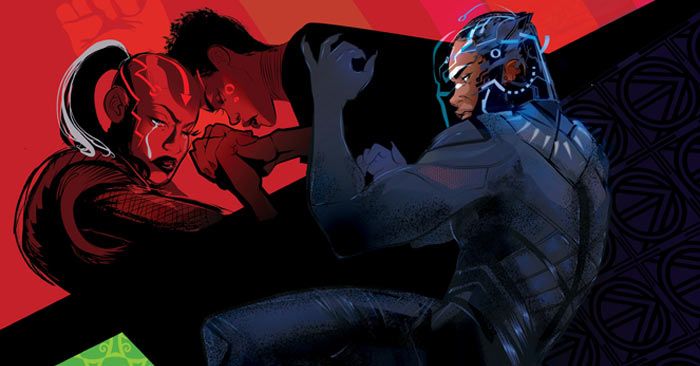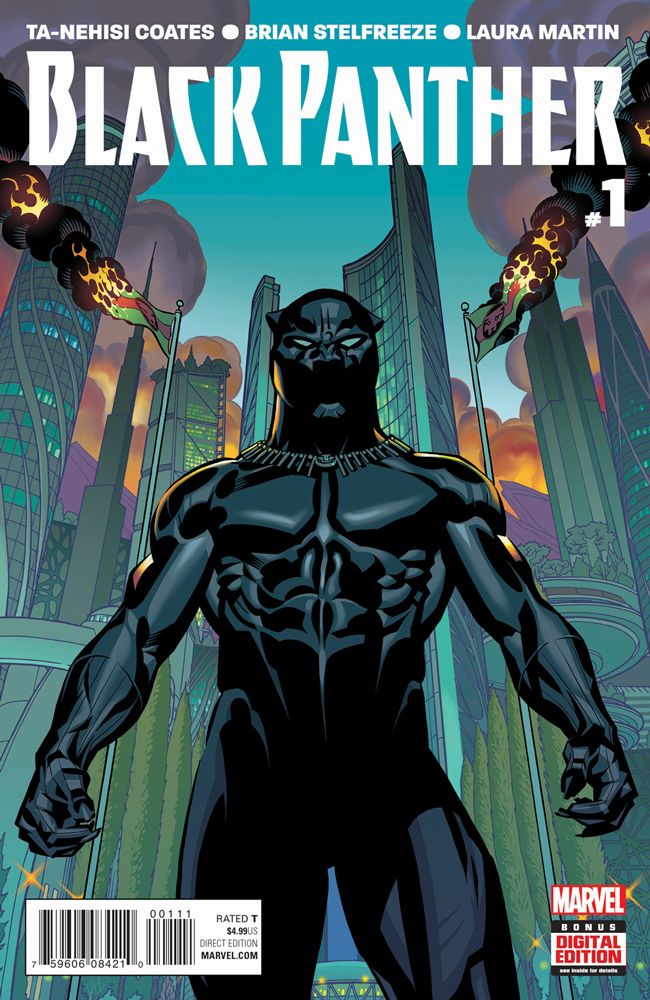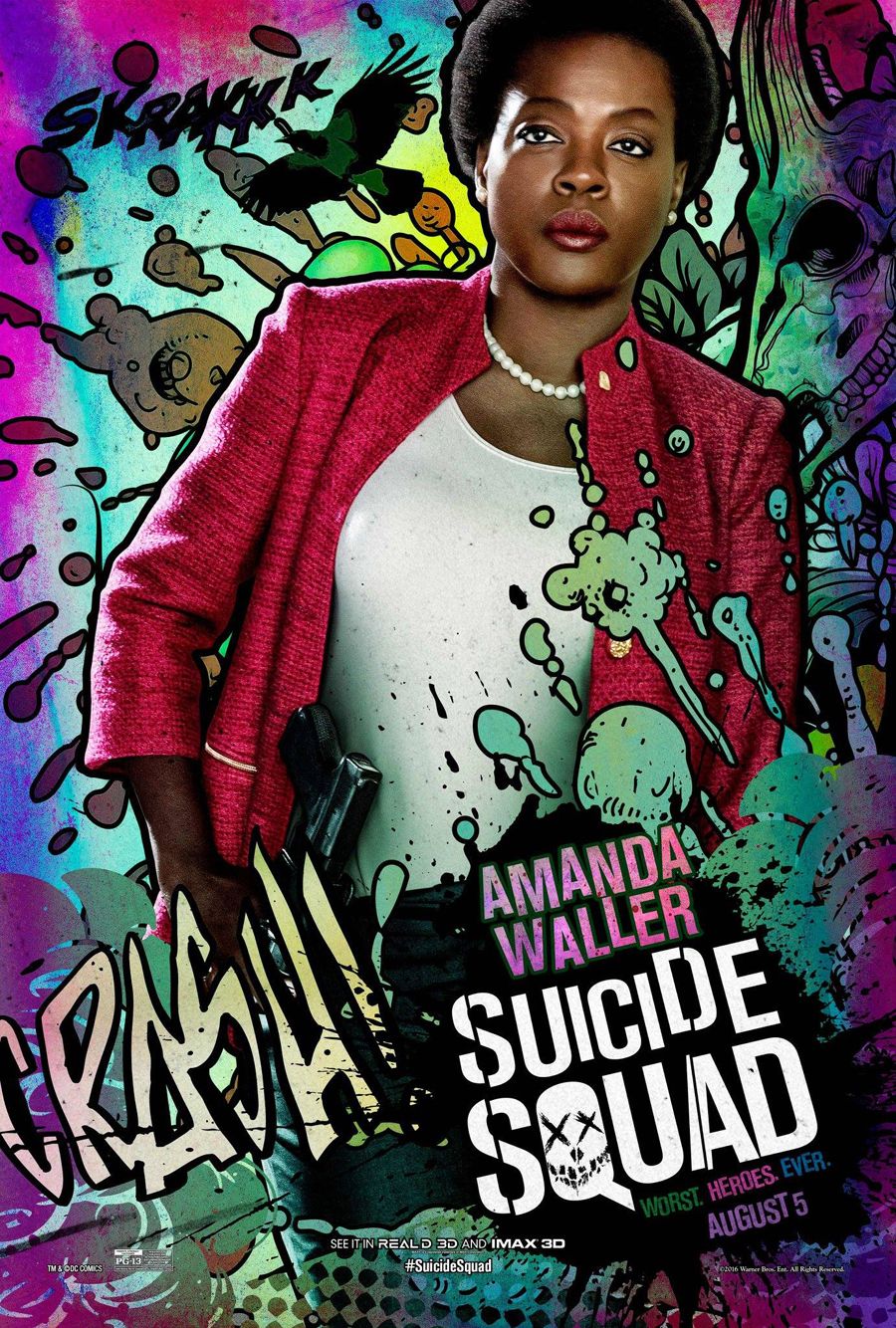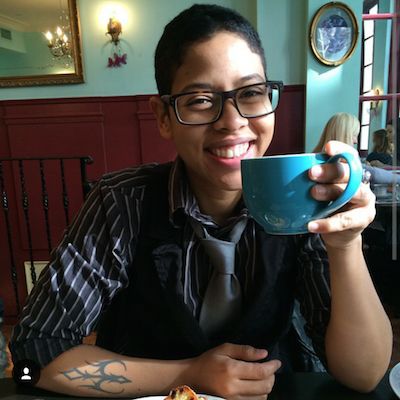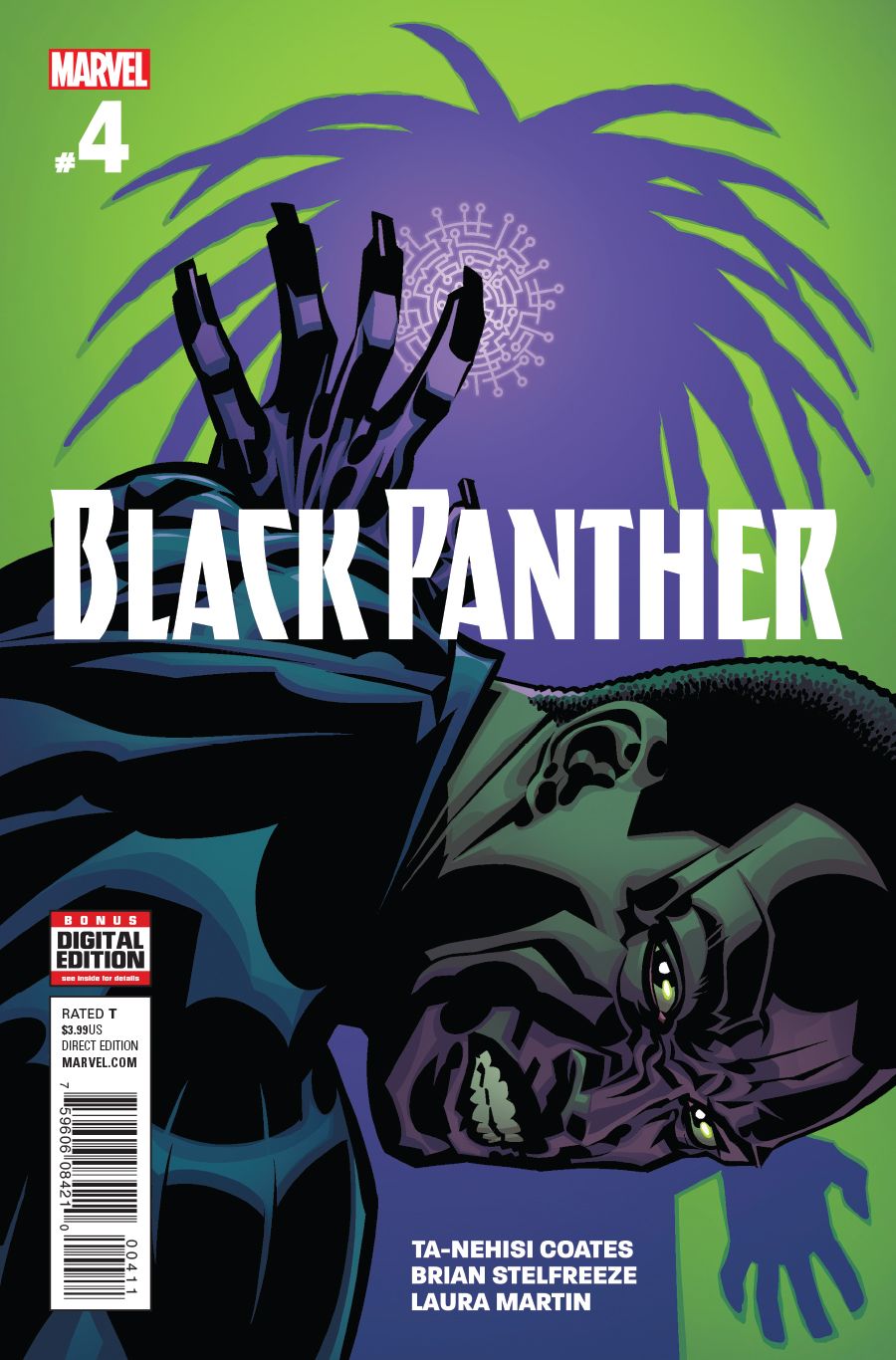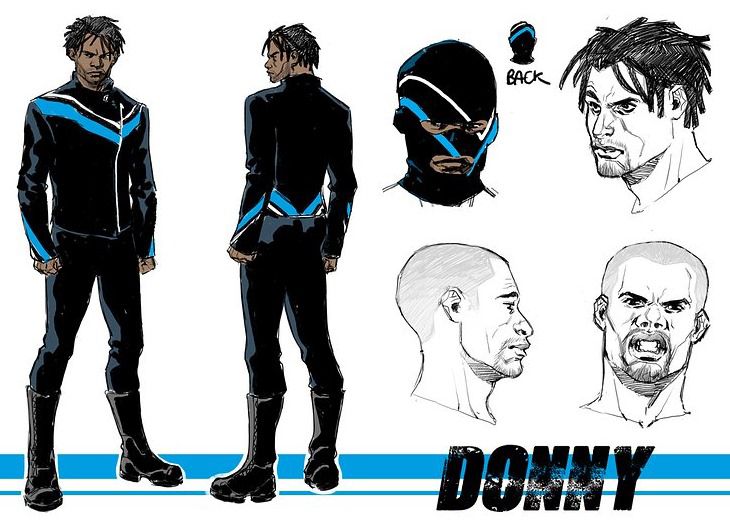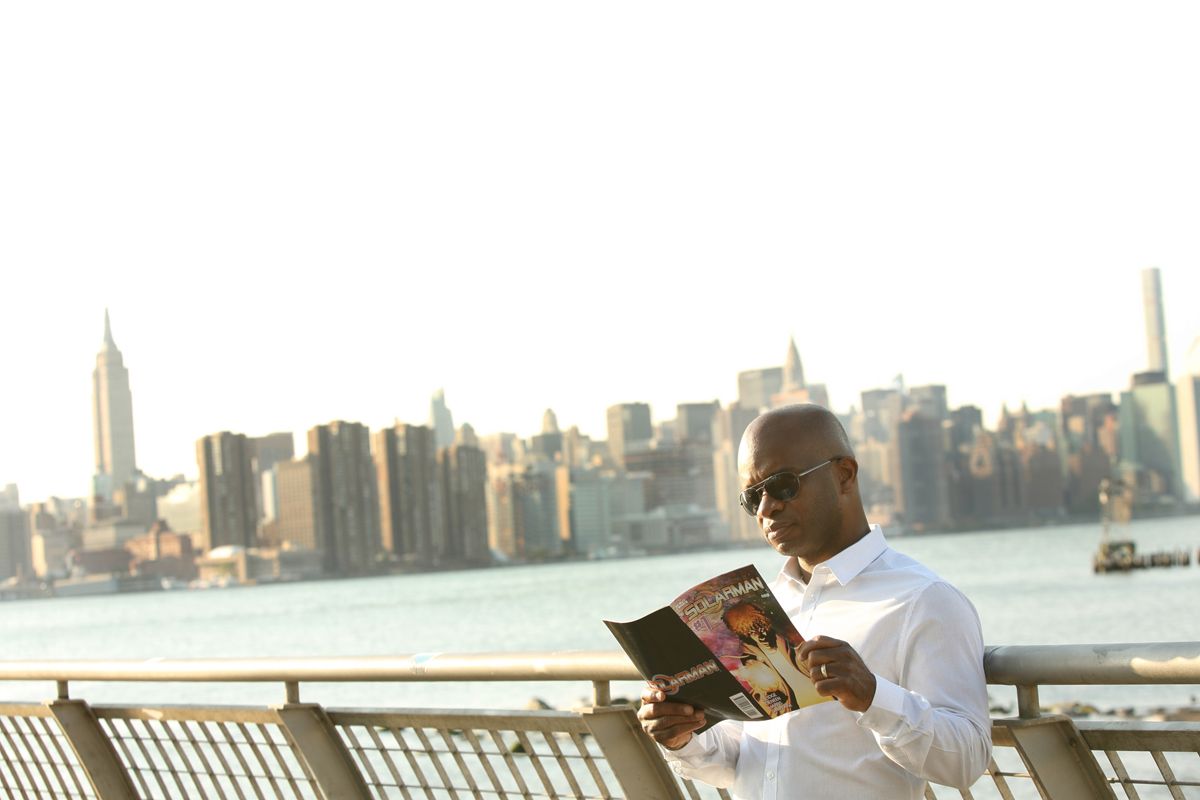During this year's Comic-Con International in San Diego, arguably the most anticipated and influential pop culture event in America year after year, Marvel Comics made an announcement of significance.
The number one publisher in monthly American superhero comic books revealed the hiring of two Black women as writers in its stable. Roxane Gay, writer, editor and Associate Professor of English at Purdue University, and Yona Harvey, author, poet and Assistant Professor at the University of Pittsburgh.
Both of these women stand at the front lines of Marvel Comics' war with its publishing legacy, of an absence of Black women as writers for its fictional landscape of superhero drama.
Additionally, this historic alliance of writers will occur within the pages of a new "Black Panther" spinoff series titles "Black Panther: World of Wakanda," scheduled to premiere this November.
Appropriate, since "Black Panther" is one of the most visible and top-selling comic books in Marvel's lineup of titles this year, in no small part due to the writing of Ta-Nehisi Coates, New York Times-bestselling author and recipient of the MacArthur "genius grant." In fact, Coates is the person who recommended authors Gay and Harvey to the higher editorial authorities at Marvel Comics, and will also contribute to the series.
Finally, the "World of Wakanda" series will have an introductory story arc illustrated by Alitha E. Martinez, former artist of "Iron Man," with covers and a back-up story illustrated by Afua Richardson, artist of an upcoming story for DC Comics' "All-Star Batman" series.
Any one of these pieces of information presents a much-needed deviation from the norm of creative practices for Marvel Comics, and the comic book industry in general. Pull back a bit, step away from the epicenter of the multilayered announcement, and you see a well-strategized plan, a well-nurtured child from which the publisher can boast an incomparable collection of women of color.
One book. Two Black women writers. A Latina artist on interiors and a Black woman artist on covers and additional interiors. The by-product of a book about a Black male superhero, written and illustrated by Black men. Both books centered on a fictional African nation of technological and intellectual formidability, one which will be the focus of the upcoming "Black Panther" film by Marvel Studios.
This... is perfect.
With "World of Wakanda", Marvel Comics has brilliantly utilized their PR and intellectual martial arts skills to kill at least five birds with one stone.
• The hiring of Black women writers
• Putting Black women characters as the lead for a superhero title
• Adding LGBT characters to their universe with visibility
• Promoting the concept of Black intellect through a monthly title
• Hiring LGBT writers
To all of us, the ones whom have criticized Marvel Comics and demanded the publisher up its game in all of the preceding categories, and for the industry and medium of comic books, this is a win-win, a victory and a clear indication of the future direction of superhero comic books in America.
Hopefully, we're compelled to applaud Marvel and their competitor, DC Comics.
Indeed, DC Comics was the first major American superhero comic book publisher to hire Black women as writers for their line, and the publisher has made an announcement to show their growing commitment to women writers of color.
This month, DC Comics will kick off their new title "Suicide Squad Most Wanted: El Diablo and Boomerang." The six-month series features characters from the same team of superpowered villains appearing in the highly-anticipated "Suicide Squad" film starring Will Smith, Viola Davis and Margot Robbie.
The book will have back-up stories by writers graduating from the DC Comics Writers Workshop.
One of these writers is Vita Ayala, author of the upcoming series "Our Work Fills The Pews" from Black Mask Studios. Ayala will write the back-up stories starring Amanda Waller, the tough-as-steel Black woman government operative portrayed by "How To Get Away With Murder" lead actress Viola Davis in the "Suicide Squad" film.
The character of Amanda Waller has been in publication since 1986 with the first issue of the DC Comics miniseries "Legends," and a publishing history of printed stories written almost exclusively by White men. Now, on the 30th anniversary of arguably one of DC Comics' two most popular Black female characters, a woman of color will write Amanda Waller in print. Quite fortuitously in the same year that the multiple award-winning actress Viola Davis will help make Amanda Waller a household name worldwide.
Ayala's co-written issues of "Suicide Squad Most Wanted: El Diablo and Boomerang" are expected to be released in December 2016 and January 2017.
The end of 2016 and the beginning of 2017 will help mark a long overdue sea change in the mainstream American superhero comic book industry, thanks to the actions and strategies of Marvel and DC Comics.
These moves serves as a thematic continuation of various announcements and developments throughout the year, ranging from RiRi Williams, the new Black female Iron Man, to Marvel's new African-American hero "Mosaic" to the new African-American "Vigilante" from DC Comics.
In speaking with Karama Horne of The Blerdgurl, the industry powerhouse blogger shared her thoughts.
"I am very happy that Marvel finally got around to hiring a Black female writer (Roxane Gay on 'World of Wakanda') and I hope DC follows suit. Let's not forget the fact that outside of the Big 2, there are lots of publishers that have been creating well-rounded characters of color and hiring women of color as artists and writers on comics for years. I hope some of the spotlight gets to spill on them as well and that fans support both ends of the comic book spectrum."
Indeed, Ms. Horne's point about the need for the visibility on the recent progressive actions by Marvel and DC Comics to expand outward to the independent publishers on the further periphery of the comic book industry is clear and noteworthy.
As the titans on the top of the mountain have caught up to real-world cultural dynamics from the collective lives of an increasingly diverse population, the companies on the ground run by people of color have been creating their own worlds for years. Their characters. Their reflections. Their mythologies.
This is a very significant time in the battle for equal opportunities in the creator pools and the fictional landscapes of the American superhero comic book industry.
I was reminded of this when I finished reading the fourth issue of Marvel Comics' "Black Panther," and noticed a letter written from Esosa E, actress and producer. In her letter, Esosa revealed that the present "Black Panther" series is her entry into the comic book industry as a consumer.
During a discussion with Esosa, she said, "I've never really felt invested in the heroes of the stories in comic books until Black Panther. The African setting, and the fact that he is royalty fighting for his country was inspiring enough to compel me to follow the series. It's very important that more stories like this are told that shine a light on the fact that Africa has been home to many of the worlds most advanced civilizations."
The "Black Panther" series is turning out to be a magnet, with which Marvel is attracting new consumers to the marketplace. Certainly, we can attribute part of this to the work of Coates, illustrator Brian Stelfreeze and color artist Laura Martin. Their labor has attracted media outlets far and wide, as well as media luminaries like internationally known hip-hop queen Jean Grae, to the series.
With that, while looking at the better things ahead, feeling joyful at the new talents of color being brought into the comic book industry, let's not forget to look back at the abyss.
The abyss in which lies the collection of talented writers of color already in the comic book industry at its various monthly periodical and academic levels. The ones toiling for years, honing their skills. The ones ignored, dismissed, racially profiled, insulted, given the rolling eye.
The talented writers of color whose calls and emails were never returned, who were invited to do work until their to-be employers met them in person and noted the shade of their complexion.
As we are thankful to Mr. Coates for helping to move the needle, the responsibility is on the comic book publishers with a deep familiarity of the collection of writers of color in the business, to employ fairness and extend opportunities to tell stories.
That abyss gazes at all of us, whether or not we have our eyes or backs to it. We can't escape its pull, nor should we want to.
Every publisher should look inwards as well as outwards, is ethically bound to look within the comic book industry in addition to outside of it, to find and employ diverse writers to shape the next age of comic books.
The abyss is this industry's legacy of systemic exclusion, and there is more work to be done before the last dance at the diversity party.
Because, as writer and artist Uraeus and The Hollywood Reporter said, "Black Heroes Matter."
Joseph Phillip Illidge is a Senior Editor for Lion Forge Comics, and a public speaker on the subjects of race, comics and the corporate politics of diversity. In addition to his coverage by The New York Times, CNN Money, the BBC and Publishers Weekly, Joseph has been a speaker at John Jay College of Criminal Justice, Digital Book World's forum, Digitize Your Career: Marketing and Editing 2.0, Skidmore College, The School of Visual Arts, Purdue University, on the panel "Diversity in Comics: Race, Ethnicity, Gender and Sexual Orientation in American Comic Books" and at the Soho Gallery for Digital Art in New York City.
Joseph's newest comic book project is the Scout Comics hit miniseries "Solarman," a revamp of a teenage superhero originally written by Stan Lee.
His graphic novel project, "The Ren," about the romance between a young musician from the South and a Harlem-born dancer in 1925, set against the backdrop of a crime war, will be published by First Second Books, a division of Macmillan.
Joseph is the co-founder of Verge Entertainment. Verge has developed an extensive library of intellectual properties for live-action and animated television and film, video games, graphic novels and web-based entertainment.

